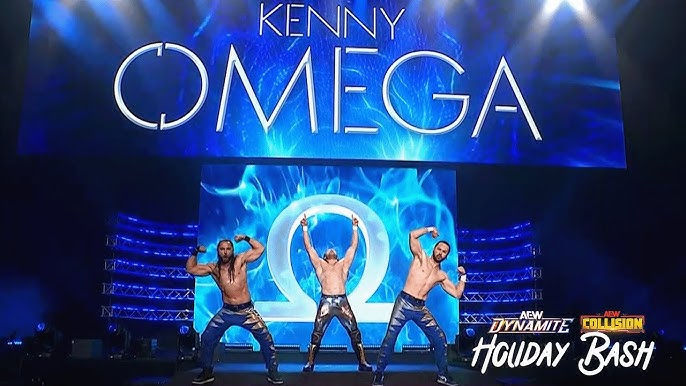The Cowboy’s Mandate: Worker’s Rights and A Tale of Punk Leadership
- Greyson Peltier
- Aug 21, 2022
- 5 min read
Updated: Aug 22, 2022

This reignited feud has very real parallels to known issues in alternative culture leadership. CM Punk shows the foibles many of these leaders fall into. Adam Page helps us see a path forward and teaches lessons in social responsibility in the face of both victory and defeat.
I have previously discussed Adam Page as a values-based leader as a World Champion, and his approach as such continues even after dropping the title. The first and most important thing is that Adam Page operates on core values not relationship. His mind operates like an umpire who calls the balls and strikes as he sees them, regardless of who’s at the plate or on the mound. He is faithful to the principle, not the person. Hangman is willing to ride solo if he must, but aims to bring true friends along. This is shown by and aligns with the storyline of choosing Dark Order for the trios tournament over The Young Bucks, while still helping the Bucks. His discernment of the character of Dark Order is validated by their acceptance of him working with the Bucks. He shows concern for others while holding this stance, saying that he pities CM Punk and deciding to fight his former friend Adam Cole first in a way that would have allowed him to resolve his issues before coming with full Texas Death Match force.
It’s very common for social movement leaders to get either engrossed in the business side, or concede it to those who do not share their values, and stop bringing their cultural ideas to the boardroom. I have long said that leaders of alternative cultural movements, like punk rock and skateboarding, are the pioneers of corporate social responsibility. But without nuanced education and leadership training that prepares them to have a fair fight with titans of industry, to “challenge those who have it all,” these pioneers get sucked in by rudimentary dollars and cents hustle culture. This happens in punk a lot, and specifically in hardcore, which has been transformed from a movement for worker’s rights among other things to the “soundtrack” of individualist achievement and ideas like those of Jordan Peterson.
“Money’s good but dignity is better” - Darby Allin
Of course, actions like union-busting, ignoring worker complaints, and letting intolerant ideologies linger, go against the values the punk leaders want to perpetuate when they go in. What they do though is improve the win and loss record, the profit and loss, and balance sheet, at least in the short-term. The money train is hard to get off of, even if you know you don’t like where it’s going and the conductor, be it a venture capitalist or a wrestling promoter, does not want to change directions. Success and cultural acceptance, the cheers from the fans still coming, after the leader becomes a normal capitalist, pseudo-authoritarian, but still ostensibly individualist (see anarcho-capitalism) gives the leader the wrong idea, that they are on the right path.
Adam Page is not fooled by the noise though; he sees past this and has relentless discernment no matter what. He has the intelligence that gives him the confidence to make his own path and not just accept the way things have always been done. He will listen to veterans but knows that this a different time and will make his own decisions by combining lived experience and the input of his community with intellectual theory, even if it is against advice coming from conventional wisdom. We know from just about every study of diversity and inclusion that when cultural leaders are given breadth and depth of education, along with building their capacity for leadership, they are able to see better outcomes while aligning with social responsibility objectives. Make no mistake about it, Page seeks victory and succeeds, just using a different approach.
Doing the right thing regardless of what the good old boys club says or does, or what the tradition would seemingly dictate, is a key distinctive of Hangman. He sticks to the important values, nor the style, not forcing the “masturbatory tribute” matches to seem like you are in the scene. It’s not the boots, the buckle or the saddle that makes him a cowboy and it’s not the battle jacket, the band T-shirt, or the Converse that makes you a punk. The second one is especially true when it’s a Cro-Mags shirt (which CM Punk once wore on Dynamite), referencing a band with a true hardcore heel, anti-vaxxer John Joseph.
Just because the culture is accepting this incursion by external forces or letting itself be rules by a personal dispute, doesn’t mean it’s right. This is the true meaning of a values based leader, doing what is right without hesitation. CM Punk is acting like the thing he hated, someone inculcated (albeit likely with reluctance at first) in the old WWE style of just caring about money and eschewing how the culture of pro wrestling has organically evolved. Though it may have made seem him weaker in the moment and a better decision would have perhaps been a speaking-only action after Punk’s remarks, Adam Page choosing not to retaliate shows he is unfazed, not in an agitated state from his defeat for the championship, but rather confident in his positions, and sticking with those he cares about, including being in their corner and having fun playing video games with them. His stance is that he is taking us to a new frontier, but to do that, he must right the sins of old. He reads the indicators and seeks to nudge the narrative in his direction. When he fails, he knows he must fight, but do so fairly at the opportune time.
Page seeks to avoid unnecessary divisions driven by personality, which are known to harm movements, but sticks to prioritizing core values in necessary disputes. That is why he said “worker’s rights,” not Colt Cabana specifically. Because it is not how Punk treats Cabana that is the issue, but the underlying attitude of holding grudges and disrupting the path forward. Adam Page’s goal is not to merely work the fans, but to let his work stand for itself while working with the passion of his community in crafting his storyline. We are all a part of Hangman’s band, if we choose to join.
Greyson Peltier is the host of The Fixerpunk Podcast, a communications consultant specializing in social impact and political advocacy, and founder of Laguna Beach, CA-based consulting firm Off Speed Solutions. He has been on both sides of the political aisle and has worked for multiple organizations. Peltier holds a BA in Political Science from the University of Southern California and has been featured by media outlets like Vice, ESPN Radio KLAA, USA Radio Network, and Street Fight Radio.
This content is for entertainment and general informational purposes only. The viewer should not rely solely upon such and consult a competent professional before deciding to follow any course of action.
.png)









What a bunch of nonsense based off rumors and speculation. Let me ask, have you ever conversed with either man in person? Ever been backstage and seen firsthand how business is handled backstage at AEW or any wrestling promotion? I really don’t care if Punk is an asshole or not because I have no way of knowing. Fans have this odd sense of entitlement to make judgments on behind the scenes workings without any firsthand knowledge. But sure, you read some dirt sheets that has 2nd or 3rd hand knowledge about a possible situation. CM Punk wore a t shirt of this one band so yea that explains everything.
Let me frame this issue between Punk and Hangman another way.…